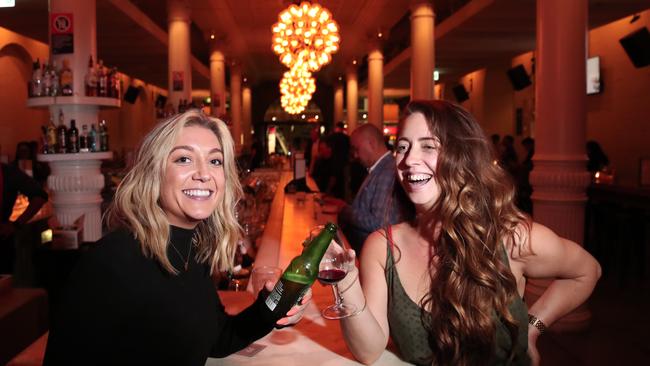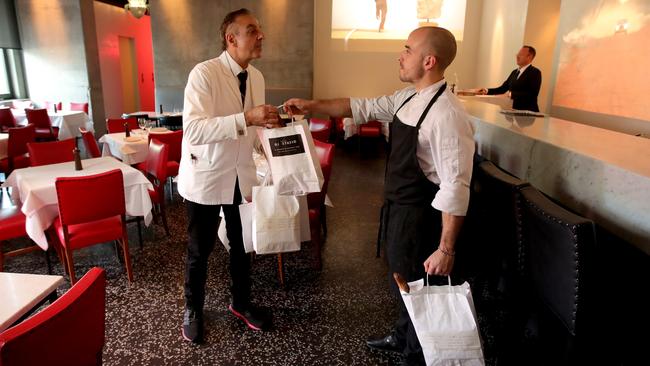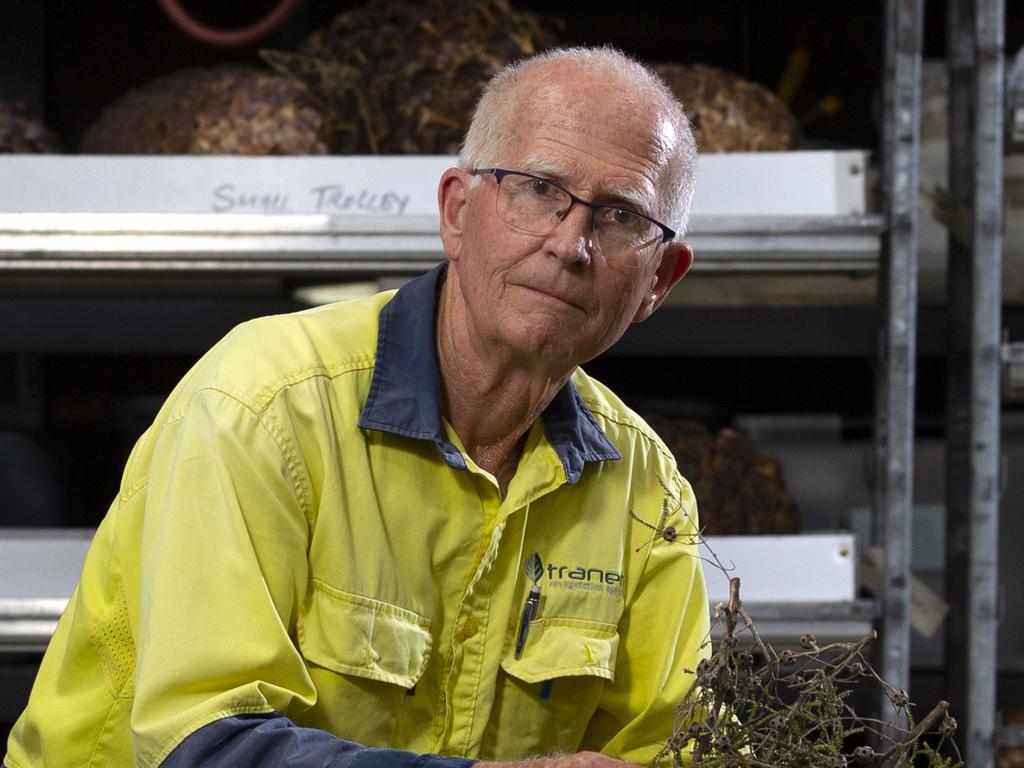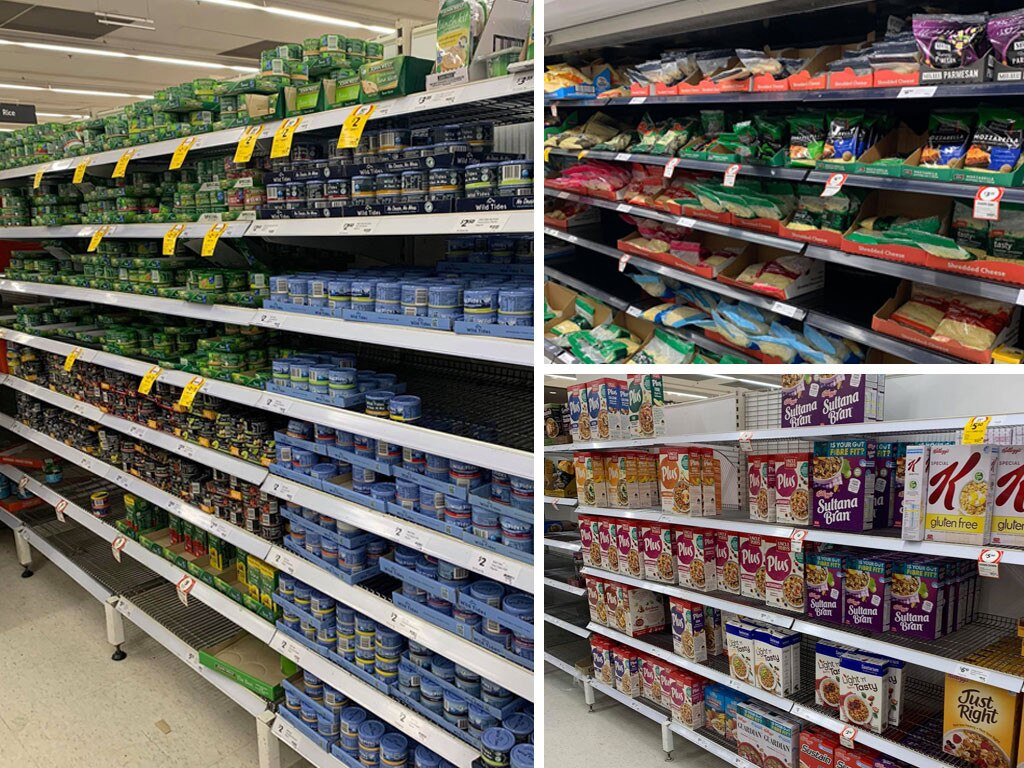Coronavirus: Drinks to dry up in the hardest hit areas
National leaders are debating a sliding scale of restrictions on gatherings in clubs and pubs, with tighter rules for areas with a large number of infections.

National leaders are debating a sliding scale of restrictions on gatherings in clubs and pubs which would become more stringent as the concentration of COVID-19 infections increases in particular areas.
Under a plan considered by the national cabinet on Tuesday night, states and territories would have latitude to impose tighter restrictions on areas with a large number of infections.
The Australian understands a cap of up to 100 people was being considered for enclosed spaces. But clubs and pubs would also face restrictions on how close they can place tables and chairs.
Areas not heavily impacted by COVID-19 were not expected to be targeted in state and territory restrictions on public gatherings.
The likely crackdown, which follows lockdowns in the US and Europe, comes as the hospitality industry braces for a massive hit from COVID-19. But the consensus on Tuesday was for a decisive government move sooner rather than later.
“The government will need to support employees, but everyone has to take a hit,” said Justin Hemmes, managing director of the country’s biggest premium restaurant group, Merivale, which has 3000 employees.
“The challenge will be for businesses to stay afloat so they can re-employ.
“But let’s fix the problem in as short a time as possible. The psychological damage has been done. The sooner we get through it, the sooner we’re out of it.”
At Merivale’s Establishment in Sydney on Tuesday night, friends Shauna Casey and Danielle O’Carroll were enjoying a night out, and plan to continue to do so.
“Girlfriend to girlfriend, we won’t stop catching up until the government says so,” said Ms O’Carroll.
“But if staying away means preventing the spread of the virus, we’ll do that 100 per cent.”
Pub lockdowns overseas have raised expectations of similar action in Australia.
As the crisis has worsened, hospitality operators have seen bookings dissolve, events cancelled and hotels quiet. For city operators relying on the business of nearby — now half-empty — office towers, the numbers have dissolved.
Melbourne chef and restaurateur Guy Grossi called it “a wipe-out.” “The phone just keeps ringing with cancellations,” said Grossi, who employs about 160 people, describing the situation as “far worse than the crash … It’s happened at such a rate of knots.”
Businesses are scrambling to adapt. Institutions such as Di Stasio Citta in Melbourne and Lucio’s in Sydney’s Paddington developed pick-up/delivery menus over the weekend for their well-heeled regulars. “I’ve been feeding people for 40 years and I’m not bloody stopping now,” said Citta owner Rinaldo Di Stasio.

Peak employer group Restaurant and Catering Australia said the industry needed “instant cash”.
“Most of the stimulus offered by the government thus far has been into the future,” CEO Wes Lambert said. “The promise of future money doesn’t solve any problems. We need measures that will enable businesses to stay afloat and reopen if they have to close.”
Rent abatements and cash support for employees laid off were chief among them. “Businesses will need to remodel to make delivery the primary focus,” Lambert said.
According to Sydney and Melbourne restaurant operator Chris Lucas, the industry is not getting enough information. “Without clarity it’s difficult to say what will be the result,” said Lucas, whose group employs about 1000, about 30 per cent casually. “Our No 1 priority is to protect employees.”
He said the declaration of a state of emergency by the Andrews government in Victoria on Monday had created a difficult trading environment.
“It’s either business as usual or shut down,” he said, with no clear statements yet about what sort of support the industry and its employees could expect.
The downturn is affecting everyone in the restaurant supply chain. Wine suppliers have taken a huge hit to orders, with one distributor reportedly telling a producer on Tuesday it did not expect to survive. This, in turn, means wine growers will lose a major source of sales.
Getting in ahead of an expected shutdown, several noted small restaurants in different states called “last service until further notice” on Saturday. Restaurant Labart, in Burleigh Heads, and Fico, in Hobart, both took the decision to shut at the weekend, telling customers via social media.
“It’s just not right to continue,” said Federica Adrisani, co-owner of Fico. “I know it’s a big risk we take (because) we don’t know what will happen. But we can’t survive on hope. Hope is nothing.”
Alex Munoz-Labart, of Restaurant Labart, at the heart of the Gold Coast’s tourist belt, said: “It’s a moral decision, but we feel the need to be proactive.
“We’d rather be prepared and deal with it and take a hit now.”
For restaurants that do choose to stay open, it’s a sorry picture, particularly for small operators faced with dwindling reservations.
“It’s like a great domino just fell,” said Ibrahim Kasif of Stanbuli in Sydney’s inner north, who said he arrived at work on Monday to a barrage of cancellations.






